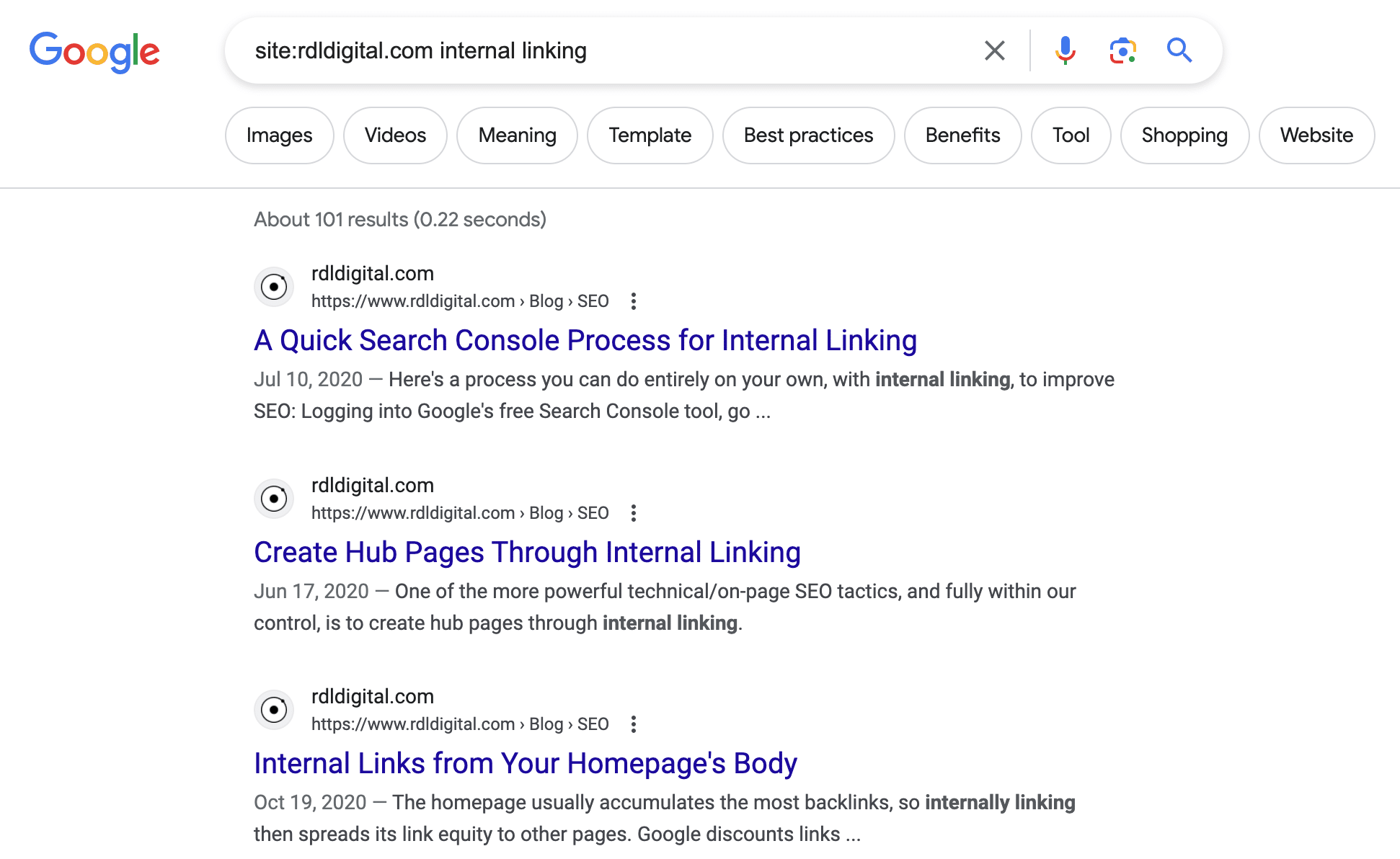When creating a page, add internal links pointing to it whenever mentioning that page’s topic on your site.

This is overlooked, as most content teams focus on links FROM that page.
Furthermore, old links for that theme lead to pages that are too general but worked in the past. This inconsistency confuses search engines & provides users with less helpful info.
A fast way to do this is to use Google’s site search operator. Enter “site:website.com keyword.” This quickly displays pages to update.
However, the best way to handle this is to use a crawling tool like Screaming Frog. You can use custom searches for keywords or URLs related to that page throughout your site. You then combine this with analytics data to determine the best link opportunities.
(Automated solutions like WordPress plugins, including those involving AI, seem to still be lacking here.)
Diversify anchor text, not only to write naturally but to be more relevant for different phrases. While search engines are good at considering synonyms in results, variation won’t harm anything. This can still play a role in ranking well because you have a more exact reference.
This isn’t just an SEO play… you are directing visitors to your best page on that subject, so ensure you include this in your content creation process (especially for hub pages). Of course, you want to balance this so as to not look spammy. Nonetheless, consider ignored factors like these to gain a competitive edge!
